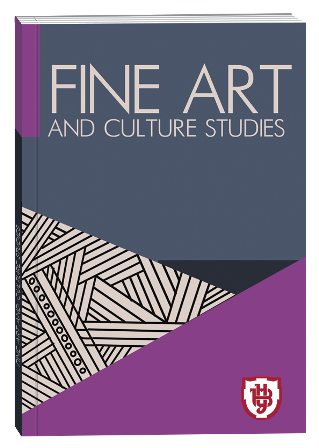PRACTICAL ASPECTS OF PERFORMING TRAINING FOR STUDENTS IN THE ACCOMPANIST CLASS
DOI:
https://doi.org/10.32782/facs-2025-1-31Keywords:
performance mastery, accompanist activity, musical performance, ensemble playing, interpretation, musical performance interaction, competenceAbstract
The article examines pressing issues of performance mastery and accompanist activities, which are an integral part of the professional training of musician-educators. Accompanist activities are considered a significant aspect of music pedagogy, contributing to the development of professional qualities in future musician-educators. The aim of the study is to analyze performance mastery and develop accompanist competencies in students, focusing on the formation of their individual and ensemble skills, as well as the improvement of methods for artistic interpretation of musical works. Additionally, the article aims to explore the key methodological approaches to training in the accompanist class, which contribute to the professional preparation of students. The scientific novelty of the study lies in its comprehensive approach to analyzing the specifics of accompanist activities within the music education system. The research highlights the integration of performance, pedagogical, and communication aspects, which are essential for successful professional preparation. Particular attention is paid to the creative collaboration of the accompanist with performers and instructors, which fosters the development of professional mastery. The article proposes innovative teaching methods aimed at enhancing the effectiveness of forming accompanist competencies in students. The conclusions emphasize that accompanist activities are one of the fundamental components of the professional training of musicians in the system of music education. They play a crucial role in developing not only performance skills but also pedagogical expertise, organizational abilities, and creative thinking. The results of the study can be utilized to improve educational programs and develop modern methodologies for training specialists in the field of musical art.
References
Давидов М. Виконавське музикознавство. Енциклопедичний довідник. Луцьк: ВАТ «Волинська обласна друкарня», 2010. 400 с.
Журавльова Н. І., Каленик І. В. Психологічні аспекти діяльності концертмейстера у сфері музичного мистецтва. Актуальні питання гуманітарних наук : міжвузівський збірник наукових праць молодих вчених ДДПУ імені Івана Франка, 2021. Вип. 36, Т. 1. С. 74–79.
Моісєєва М. А. Інтеграція музикознавчих і психолого-педагогічних знань як чинник творчої інтуїції музиканта. Вісник Житомирського державного університету імені Івана Франка, 2005. Вип. 21. C. 51–54.
Молчанова Т. О. Мистецтво піаніста-концертмейстера у соціокультурному контексті сучасності. Українська культура: минуле, сучасне, шляхи розвитку. Наукові записки РДГУ, 2013. Вип. 19(1). С. 212–217.
Повзун Л. І. Ансамблева творчість піаніста-концертмейстера : Навчалальний посібник. Одеса: Фотосинтетика, 2009. 104 с.
Польська І. Камерний ансамбль: феноменологія жанру. Наукові збірки Львівської національної музичної академії імені М. В. Лисенка. 2010. Вип. 24. С. 4–14.
Ревенчук В.В. Теорія та методика формування концертмейстерських умінь : Навчальний посібник. Ніжин: Видавництво НДУ імені М. Гоголя, 2009. 111 с.
Скляров О. Д. Методика викладання курсу фортепіано. Формування і розвиток виконавських навичок студентів : Навчальний посібник. Харків: ХДАК, 2002. 79 с.
Цюлюпа Н. Л. Педагогічні умови формування методичної компетентності майбутнього вчителя музики в процесі інструментальної підготовки : автореф. дис. …канд. пед. наук : 13.00.02 “Теорія та методика музичного навчання”. Київ, 2009. 20 с.







